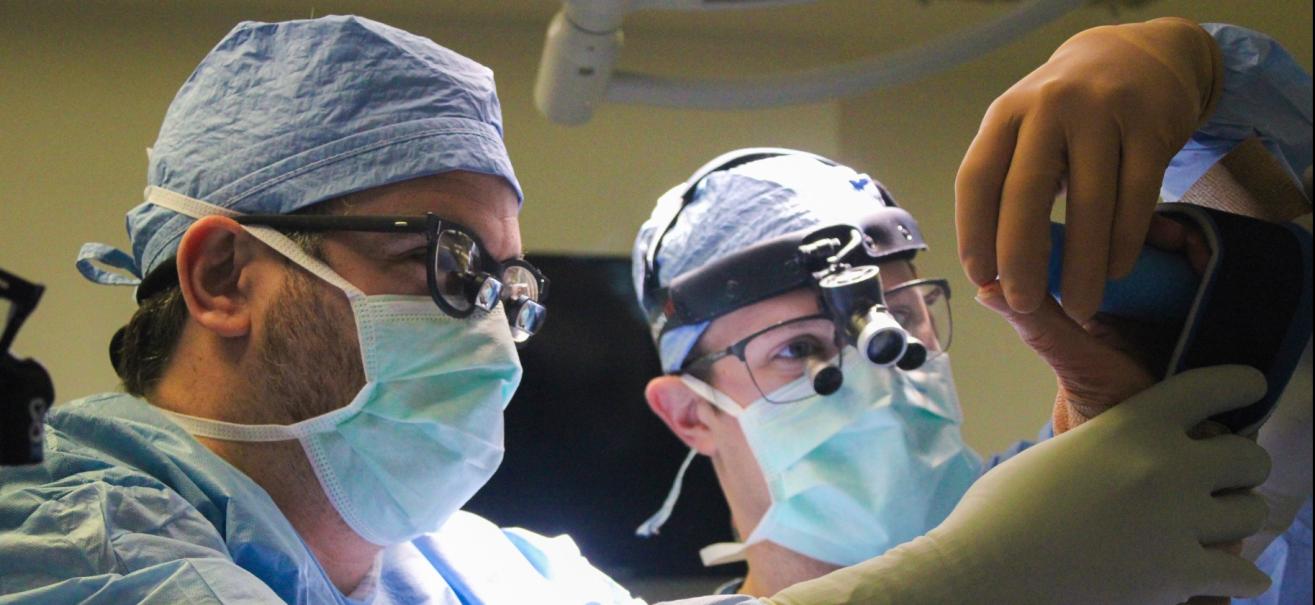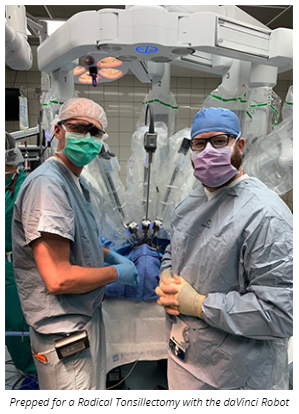Checking out the Field of Otolaryngology: What to Anticipate When You Speak With an ENT
Otolaryngology, typically described as ENT, includes the medical diagnosis and treatment of nose, ear, and throat disorders. For those experiencing related concerns, speaking with an ENT expert can provide clarity and alleviation. Recognizing what to expect during such examinations is essential for efficient communication and treatment. This overview will outline essential aspects of the ENT experience, consisting of typical reasons for sees and the procedures associated with diagnosis and treatment.

Recognizing Otolaryngology: A Review
Otolaryngology, typically described as ENT (Throat, ear, and nose) medication, is a customized branch of medicine that concentrates on the diagnosis and therapy of conditions impacting these crucial areas of the human body. This field incorporates a variety of conditions, including those pertaining to hearing, equilibrium, breathing function, and speech. Otolaryngologists are trained to manage both clinical and medical therapies, making use of advanced techniques and modern technologies. Their proficiency prolongs beyond traditional conditions, resolving problems such as allergies, sinus infections, and hearing loss. Additionally, they play a crucial duty in the management of head and neck cancers, providing detailed care tailored to specific patient demands. In general, otolaryngology stays vital for maintaining health and lifestyle in affected people.
Typical Reasons to See an ENT Professional
Several people seek the expertise of an ENT expert for a range of factors, mirroring the varied nature of conditions that influence the throat, nose, and ear. Typical problems consist of persistent sinusitis, which usually results in consistent nasal congestion and face discomfort. Allergic reactions and their connected signs and symptoms, such as itching and sneezing, likewise motivate visits to these professionals (Voice). Hearing loss, whether steady or sudden, is an additional considerable factor for appointment. Additionally, people may look for assessment for throat conditions, consisting of persistent hoarseness or swallowing problems. Rest apnea, characterized by disturbed breathing during sleep, is often addressed by ENT specialists also. Each of these conditions highlights the value of specialized care in managing complicated ENT-related health and wellness issues
Getting ready for Your ENT Visit
When preparing for an ENT consultation, it is necessary to collect appropriate information and take into consideration any kind of particular problems. Individuals should assemble an in-depth case history, including previous ear, nose, or throat problems, surgical procedures, and current medicines. Documenting symptoms-- such as seriousness, regularity, and period-- can offer important insights for the ENT expert. Furthermore, individuals need to prepare a checklist of inquiries they wish to ask, making sure that all concerns are attended to throughout the check out. Bringing along any type of relevant clinical documents or test outcomes can even more aid the ENT in understanding the patient's problem. Ultimately, clients need to confirm their appointment information, including day, time, and location, to decrease any type of final complication. Correct prep work can boost the efficiency of the assessment and lead to far better outcomes.
What to Anticipate Throughout the Appointment
As the consultation begins, the individual can expect to participate in a comprehensive discussion with the ENT specialist about their signs and symptoms and case history. The expert will certainly ask concerning the duration, regularity, and extent of signs such as hearing loss, nasal blockage, or sore throat. In addition, the client's previous medical problems, see medications, and any kind of appropriate family members history will certainly be assessed, aiding the professional in creating a complete understanding of the person's health. The ENT might likewise ask about lifestyle factors, such as direct exposure to irritants or allergens. This open dialogue establishes a structure for the assessment, making sure that the patient's problems are addressed and setting the stage for any needed evaluations or referrals for therapy.
Analysis Examinations and Treatments in Otolaryngology
A variety of diagnostic tests and procedures are crucial in otolaryngology to accurately evaluate and detect problems affecting the nose, ear, and throat. Common examinations include audiometry, which gauges hearing feature, and tympanometry, evaluating center ear stress. Nasal endoscopy enables visualization of the nasal passages and sinuses, while laryngoscopy checks out the throat and singing cords. Imaging techniques, such as CT scans and MRIs, supply detailed views of head and neck structures. Allergic reaction screening may also be performed to identify triggers for sinus or respiratory issues. These diagnostic devices allow ENT professionals to create a comprehensive understanding of clients' conditions, ensuring customized and efficient administration plans. Appropriate medical diagnosis is crucial for effective therapy outcomes in otolaryngology.
Treatment Choices Offered by ENT Specialists
ENT specialists provide a range of therapy choices tailored to address certain conditions affecting the nose, ear, and throat. These treatments vary from conventional strategies, such as drug and way of life modifications, to even more invasive treatments. Allergies might be managed with antihistamines or immunotherapy, while persistent sinus problems might call for nasal corticosteroids or sinus surgical treatment. For hearing loss, ENT specialists frequently recommend listening devices or medical treatments like cochlear implants. In cases of throat conditions, options can include speech therapy or surgeries to remove blockages. Furthermore, they may provide advice for handling sleep apnea, including making use of CPAP devices or surgical treatments. In general, the objective is to boost clients' quality of life with customized treatment and efficient treatment approaches.
When to Look For Follow-Up Care With an ENT
When to look for follow-up treatment with an ENT specialist is crucial for handling continuous signs and symptoms or issues connected to throat, ear, and nose problems, recognizing. Individuals should take into consideration setting up a follow-up appointment if signs continue regardless of first therapy, such as persistent ear discomfort, nasal blockage, or throat discomfort. Modifications in hearing, balance problems, or uncommon nasal discharge might also call for more evaluation. Additionally, if a patient sinus pressure headache experiences side effects from suggested drugs or has actually undertaken a surgery, follow-up treatment is essential to monitor healing and deal with any type of problems. Prompt examinations can assure reliable monitoring of conditions, protect against prospective issues, and provide assurance concerning one's health. Looking for follow-up treatment advertises aggressive wellness administration in otolaryngology.
Regularly Asked Questions

What Qualifications Should I Look for in an ENT Professional?
When looking for an ENT specialist, one must try to find board accreditation, relevant experience, and solid individual reviews. Furthermore, effective communication abilities and a compassionate technique can greatly enhance the overall treatment experience.
Just how Do I Select the Right ENT for My Requirements?
Choosing the best ENT expert includes assessing their credentials, experience, and patient testimonials (Otorrinolaringologia). It is important to consider their communication design and strategy to treatment, ensuring they straighten with the individual's details health and wellness requirements and preferences
Are There Any Type Of Threats Associated With ENT Procedures?
The threats related to ENT procedures may include infection, blood loss, anesthetic difficulties, and potential damage to bordering frameworks. Individuals sinupret tablets should review these dangers with their medical professional to recognize private problems and warranty notified choices.
How Can I Manage Anxiousness Before My ENT Consultation?
To handle anxiousness prior to an appointment, individuals can exercise deep breathing workouts, visualize favorable results, prepare questions in advancement, and look for support from good friends or household, fostering a feeling of reassurance and peace.
What Should I Do if I Experience Adverse Effects From Therapy?
If adverse effects from treatment happen, the individual needs to without delay report them to their doctor. Changes to treatment or added treatments may be needed to guarantee security and efficiency in handling their condition - ENT surgery. As the appointment begins, the client can expect to involve in a detailed discussion with the ENT expert about their signs and clinical history. These diagnostic devices allow ENT professionals to establish a detailed understanding of clients' problems, making certain customized and reliable monitoring plans. ENT specialists use a range of therapy choices tailored to deal with certain conditions affecting the nose, ear, and throat. When looking for an ENT expert, one need to look for board accreditation, appropriate experience, and strong patient evaluations. Selecting the ideal ENT expert entails assessing their qualifications, experience, and individual testimonials